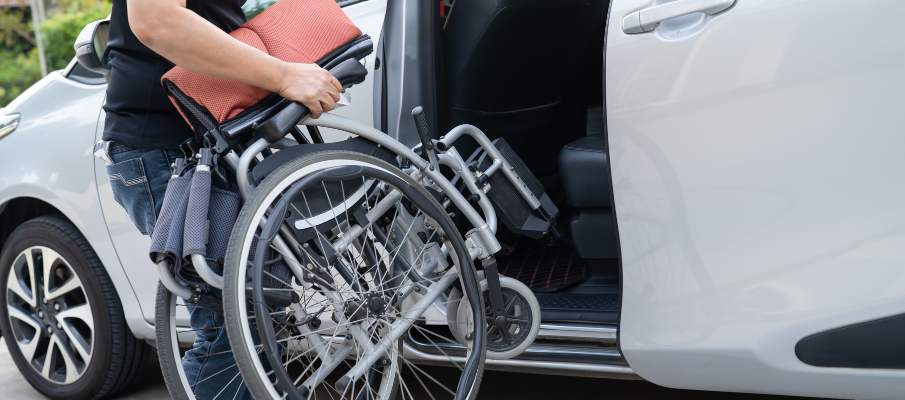Travelling is a wonderful way to explore new cultures, experiences, and landscapes. However, for individuals with reduced mobility, planning a trip requires additional considerations. Accessible tourism focuses on making travel more inclusive for everyone, providing facilities and services that cater to all abilities. This guide offers tips to ensure a smooth and enjoyable trip for travellers with reduced mobility.
1. Understanding Accessible Tourism
Accessible tourism aims to make destinations, accommodations, and services available to everyone, regardless of physical limitations. From accessible transportation to inclusive activities, this form of tourism ensures that everyone can participate in memorable travel experiences.
- Why Accessibility Matters: The importance of making tourism accessible extends beyond convenience; it’s about equality, independence, and enjoyment. Good accessibility benefits not only those with disabilities but also older travellers, families with small children, and anyone who may temporarily require support.
2. Planning Ahead is Key
One of the most critical aspects of accessible tourism is preparation. The more research and planning you do, the better your travel experience will be.
- Research Your Destination: Not all destinations are equally accessible. Look into cities and countries known for their efforts to accommodate reduced mobility travellers. Europe, for instance, has several cities like Barcelona and Berlin that are famous for their accessibility.
- Book Accommodations Early: Seek hotels and rentals that highlight accessibility features. This can include wheelchair ramps, elevators, accessible bathrooms, and lower bed heights. Many booking websites have filters to find accessible accommodations specifically.
- Inquire About Specific Needs: Always communicate directly with accommodation providers. Ask detailed questions about the features you need, such as grab bars in bathrooms, step-free showers, and proximity to accessible transport.
3. Transportation Tips for a Smoother Journey
Transportation is a crucial part of any trip, and finding suitable options can significantly improve the experience.
- Accessible Airports: Major airports offer assistance for those with mobility needs, from special security lanes to wheelchairs and assistance staff. Notify the airline of your requirements at least 48 hours before departure.
- Accessible Car Rentals: Look for car rental companies that provide adapted vehicles, such as those with hand controls or wheelchair-accessible vans. Ensure you have the correct driving permit for your destination and, if required, know how to use the vehicle’s features before leaving the rental facility.
- Trains, Buses, and Public Transport: Many cities have accessible public transport, including buses with ramps and priority seating for people with disabilities. Trains often have wheelchair-accessible carriages and special boarding platforms, but it’s advisable to book these services in advance.
4. Packing Essentials for Reduced Mobility Travellers
Packing strategically can save time, ensure comfort, and reduce stress.
- Mobility Aids and Medical Equipment: Whether you use a wheelchair, cane, or another mobility aid, ensure it’s in good condition before you travel. Bring spare parts or repair kits for minor fixes. Portable ramps and foldable wheelchairs can make it easier to access a variety of places.
- Medication and Health Supplies: Carry enough medication for your entire trip, plus extra in case of delays. Keep a prescription list with you, and make sure you know where to find pharmacies at your destination.
- Travel Insurance: Purchase comprehensive travel insurance that covers medical emergencies and equipment loss or damage. Ensure the policy covers pre-existing conditions and medical repatriation if necessary.
5. Choosing Accessible Attractions and Activities
Engaging in activities is one of the highlights of travelling, and many attractions are becoming more inclusive.
- Research Accessible Attractions: Look for museums, parks, and historical sites that cater to accessibility needs. Some may offer wheelchairs on-site, step-free access, and guide services for those with hearing or visual impairments.
- Outdoor Activities for All: Nature-based tourism, such as national parks, beaches, and trails, is becoming more accessible. Many beaches have wheelchair-friendly paths and special chairs for sand mobility. Nature trails and boardwalks often have accessible routes marked on maps.
- Accessible Tours and Guides: Many tour operators now specialise in accessible tourism, offering private or small group tours designed for those with reduced mobility. They can arrange transport, guides, and support tailored to your needs.
6. Dining and Culinary Experiences
Food is an essential part of any travel experience. However, finding accessible dining options requires a bit of foresight.
- Search for Accessible Restaurants: Use online platforms and apps to locate restaurants that have accessibility features. Many review sites allow customers to rate venues on their accessibility, providing insights on step-free entrances, accessible toilets, and seating arrangements.
- Book in Advance: To ensure that your chosen restaurant can accommodate your needs, it’s wise to book ahead. Specify any dietary requirements as well, especially if they relate to health conditions.
- Local Food Markets: Exploring local food markets can be a great way to experience the culinary scene. Look for those that are step-free or have accessible pathways, allowing you to enjoy the vibrant atmosphere without barriers.
7. Accessible Accommodation: Making the Right Choice
Finding the right place to stay is critical for comfort and convenience. Many accommodations cater to travellers with reduced mobility, but it’s essential to verify their features.
- Hotels vs. Rentals: While hotels may offer predictable amenities like ramps, accessible lifts, and specialised rooms, private rentals can provide a more homely feel. Use reputable booking platforms that verify accessibility features.
- Room Layout and Amenities: If you use a wheelchair, ensure that the room has wide enough doorways, roll-in showers, and accessible beds. For those with hearing impairments, check for visual alarms and telephones with amplifiers.
8. Travelling with a Companion or Support Service
Travelling alone can be freeing, but it’s also essential to consider whether a companion or support service is necessary.
- Travelling Companions: Having a trusted friend, family member, or carer with you can provide peace of mind and assistance with transportation, navigating new areas, and emergencies.
- Local Support Services: Many destinations have local support organisations that offer mobility aids, personal assistance, or emergency services. Research these services before travelling to know who to contact in case you need support.
9. Technology and Apps for Accessible Travel
Technology can be a traveller’s best friend, especially when it comes to accessible tourism.
- Navigation and Accessibility Apps: Several apps can assist with planning accessible routes, locating suitable attractions, and even finding restrooms. Apps like “Wheelmap” or “Google Maps” allow users to check the accessibility status of different venues.
- Communication Tools: For those with hearing or speech impairments, having translation and text-to-speech apps can enhance communication. These apps help translate signage, communicate with locals, and access vital information.
10. Travel Tips for a Stress-Free Journey
A few final tips can make your travel experience smooth and enjoyable.
- Take Your Time: Don’t rush your journey. Plan rest days, allow extra time for getting around, and take advantage of early boarding or priority lines whenever possible.
- Keep Documents Handy: Have a travel wallet with all your essential documents, including passport, insurance, health cards, and prescriptions. Keeping digital copies on your phone is also advisable.
- Stay Positive and Embrace the Experience: There may be challenges along the way, but travelling is about exploring, learning, and enjoying new experiences. Stay positive, be open to change, and adapt as needed.
Why Choose Perfect Travel for Your Transfers
When travelling with reduced mobility, reliable and accessible transportation is essential. Perfect Travel provides personalised transfer services in comfortable, wheelchair-accessible vehicles. Their drivers are experienced, attentive, and understand the specific needs of travellers with mobility challenges. From the moment you arrive until your return journey, Perfect Travel ensures that your transfer is smooth, stress-free, and tailored to your needs. Booking with Perfect Travel allows you to focus on enjoying your trip, knowing that your transportation is in professional hands. Let Perfect Travel make your journey easier and more enjoyable.




